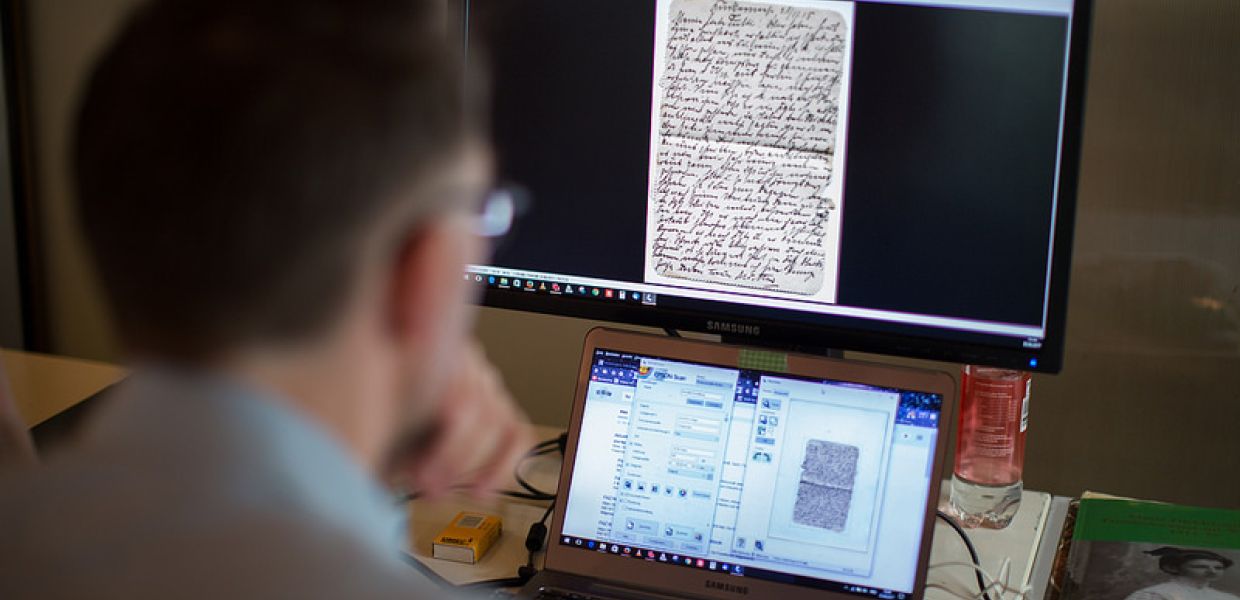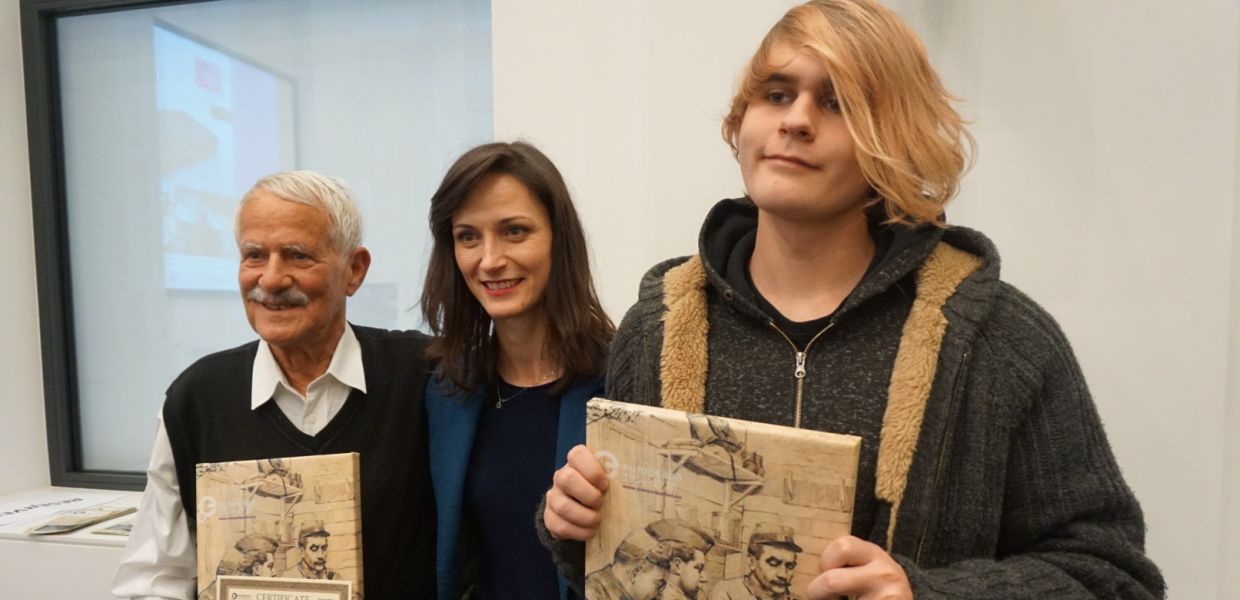Krzysztof said, ‘The transcribathon made me learn some things. I do feel more connected to history.’
Peter said, ‘I love the transcribathon because it connected me to the information I had from both of my parents. My father came here with the first army in August 1914. He was also an artist, a painter, and he gave a very vivid description of Brussels. And when I arrived here, I shed some tears when I was in the park, as I remembered those times with my parents.’
Through the actions of digitising content, participants saw their connection to the past changed. Whether it be through seeing new-found humanity in people from past generations, or similarities between themselves and the people they were often so intimately reading about - every participant interviewed commented on their transformed view of historical events and people.
Competition finalist Anastasija Smirnova said, ‘I feel really grateful that I had this opportunity to come here and participate here. Also, I think Europeana gives people a chance to look inside everyday life because before that we were looking just on political stuff, political levels, whereas now we know we are going inside common ordinary people’s lives.’
Transform culture, transform people, transform the world
At Europeana, we aim to do more than provide access to cultural heritage - we also aim to connect to the humanity that lies within these cultural heritage objects.
As Europeana Foundation Executive Director Harry Verwayen stated, 'When we talk about digital transformation, we must also ask: transforming into what? And how?'
See, the difference between digitisation and digital transformation is that which is being transformed. We digitise things: books, paintings, letters, even processes, mathematics and music. But digital transformation, it is us - people and society - that is the ‘thing’. We are the ones being transformed, it is the disruption to our mechanisms and behaviour that is important.
Transform the world with culture. Sounds familiar, doesn’t it?
Do you have an opinion on digital transformation? An example of it in action? Do you still see it as a buzzword? Get in touch! Contact Europeana Pro Editor-in-Chief Emily D'Alterio, submit an opinion piece or editorial, and add to the conversation around digital transformation in culture.


